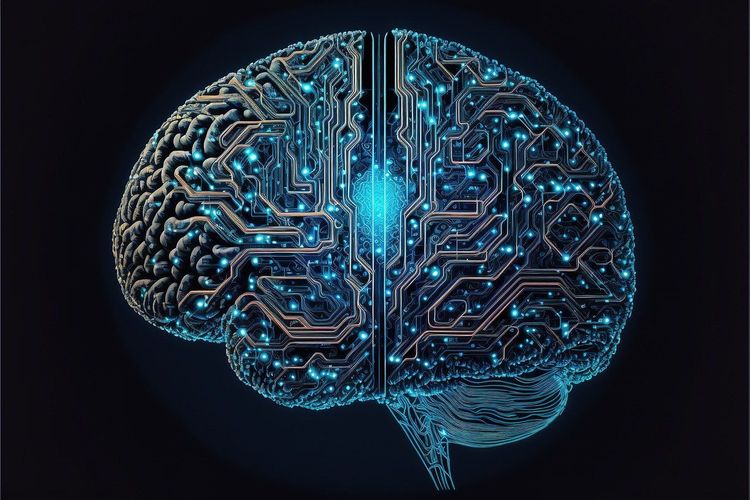Presented by MongoDB
Generative AI is transforming modern applications, promising to be an integral part of software for personalized experiences. It empowers developers and businesses to create world-class applications efficiently.
“Generative AI enhances developer productivity and enriches their experiences throughout the development cycle,” says Gregory Maxson, global lead of AI GTM at MongoDB. “This technology allows developers to focus on meaningful innovation and build impressive applications faster.”
Recent research emphasizes these productivity gains. McKinsey reports that developers can complete coding tasks two times faster with generative AI. Tasks such as writing code and documentation can be reduced to half the time, while code refactoring may take only two-thirds of the usual duration. As a result, developers leveraging AI tools express significantly higher job satisfaction, with many more than twice as likely to report happiness and fulfillment in their work.
Moreover, GitHub's findings indicate that developers using AI-powered tools feel 75% more fulfilled and are 87% more likely to tackle high-value problems instead of monotonous tasks—helping organizations retain their top talent.
MongoDB positions itself as a pivotal resource for organizations of all sizes. Its multi-cloud platform, MongoDB Atlas, supports developers in building and scaling applications efficiently. Coupled with Atlas Vector Search, companies can develop applications powered by generative AI with greater ease, while benefitting from MongoDB's exceptional partner integrations.
Reducing Complexity, Increasing Flexibility
MongoDB acknowledges the importance of providing developers with a diverse range of frameworks tailored to their preferred programming languages and application-building methods. By making features easily accessible, MongoDB ensures that developers have the flexibility to use their preferred frameworks when utilizing MongoDB Atlas, facilitating faster and easier modern application development.
Maxson highlights that MongoDB is focused on partnerships with leading frameworks such as LlamaIndex and LangChain. These collaborations streamline the creation of AI-enabled applications by integrating operational and vector data onto a unified platform.
Both LangChain and LlamaIndex have recently unveiled enterprise products, and MongoDB’s involvement started right from the beginning. For instance, MongoDB's integration of semantic caching with LangChain enhances the efficiency of developers in creating advanced applications. As the landscape evolves, MongoDB remains committed to adapting its partnerships to meet evolving market demands.
Partners in Action
Integrating Vector Search with LangChain and LlamaIndex enables developers to access and manage LLMs from major cloud partners like AWS, Google Cloud, and Microsoft Azure, as well as model providers such as OpenAI. This integration allows the generation of vector embeddings and the development of AI-driven applications on MongoDB Atlas.
“LlamaCloud allows businesses to coordinate LLM and RAG workflows across various data sources with MongoDB Atlas Vector Search as a key storage element,” explains Jerry Liu, co-founder and CEO of LlamaIndex.
“Our collaboration enables developers to efficiently translate LLMs' reasoning capabilities into innovative applications that yield significant business outcomes,” Liu adds.
As noted by Erick Friis, founding engineer at LangChain, the rapid evolution of AI presents challenges associated with lock-in risks from specific models or architectures. “Our partnership with MongoDB provides an exceptional solution by combining vector store capabilities with a reliable NoSQL database to support advanced retrieval methods,” he states, highlighting an uptick in user preference for MongoDB due to its flexibility and advanced features.
MongoDB is already seeing success from this strategy, as new AI frameworks prioritize integrations with MongoDB early in their development process.
The Future of AI Partnerships
With generative AI becoming critical for businesses, Maxson emphasizes the need for integrated partnerships with leading cloud providers and innovative AI startups. “Robust relationships across the developer ecosystem ensure end-to-end seamless solutions, allowing developers to focus on their tasks without concerning themselves with numerous moving parts,” he concludes.
MongoDB boasts extensive partnerships with major cloud providers—AWS, Microsoft Azure, and Google Cloud—and is actively deepening those ties. Recent collaborations aim at training models for natural language code completion and developing integrations with managed LLM services. For example, the recent introduction of MongoDB Atlas Search Nodes on AWS and Google Cloud significantly boosts generative AI performance, providing dedicated infrastructure that enhances speed by up to 60% for search workloads.
In addition, MongoDB collaborates with AI innovators like Cohere, Codeium, and Voxel 51, expecting to further expand its partner network.
“We recognize that seizing the AI opportunity requires collaboration with our existing ecosystem, alongside forging new partnerships to inject innovative solutions into our offerings,” Maxson asserts.
As MongoDB assists customers in navigating the ever-changing AI landscape, it remains committed to providing a broad range of solutions to meet diverse needs. “Our goal is to ensure that, regardless of the tools in a developer's stack, MongoDB seamlessly integrates,” he affirms.
Developer Engagement and Innovative Applications
MongoDB's platform is gaining traction not only with well-established corporations but also with dynamic startups like Hugging Face and OneAI. Use cases span various sectors, from real-time diagnostics in personalized medicine by Inovaare to cyber threat analysis by VISO TRUST.
For instance, UKG, a workforce management company, utilizes MongoDB Atlas Vector Search for AI-powered assistants due to its flexibility and minimal architectural complexity. Meanwhile, ENI, one of Europe’s largest energy firms, transitioned to MongoDB Atlas to better manage its extensive geospatial data and developed a chatbot-based document management system that harnesses generative AI capabilities for enhanced data retrieval.
“A year ago, there were doubts about generative AI's potential,” Maxson reflects. “Now, organizations—from startups to global enterprises—know that integrating generative AI into their operations is essential for relevance. Developers appreciate the ongoing innovation from MongoDB that simplifies their processes while empowering them to create exceptional applications.”







